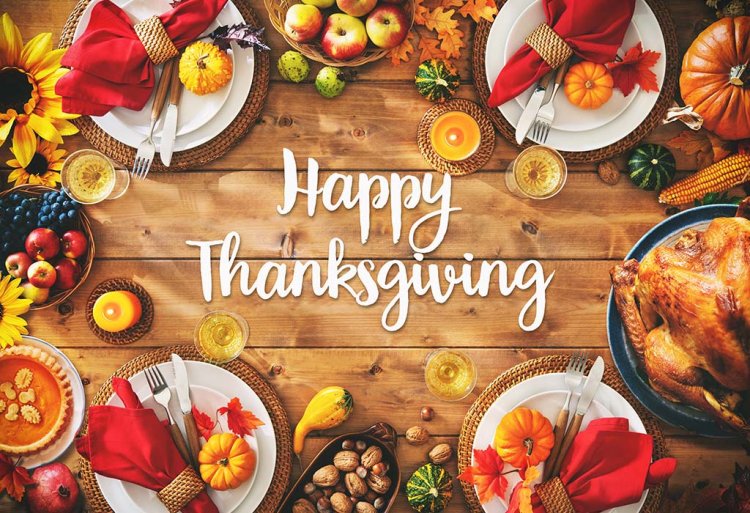Dr. Linda Miles Shares Thanksgiving Reminders

UNITED STATES: For many people, Thanksgiving is a time for family, feasting, football, and fun. This special day, however, is about far more than sampling delicious food or catching up with distant relatives. The essence of the holiday is summarized in its very name: giving thanks.
Memorable Thanksgiving lessons can happen anywhere—even in the cancer ward of a hospital. Dr. Miles experienced this firsthand as a visiting psychotherapist serving a group of hospital patients. Those men and women were characterized by their vibrancy, humor, and gratitude, emanating a tangible warmth and camaraderie. It seemed inconceivable
that they all had terminal cancer.
When Dr. Miles first walked into the room where they were gathered to meet and eat, one of the women laughed good-naturedly and exclaimed, “Oh my gosh, she’s wearing white!” She initially thought Dr. Miles was a fellow patient instead of a new facilitator, which is why her choice of clothing seemed so unusual. None of the women in the group opted for white because they wore dark pins which indicated that they were marked for chemotherapy; they forewent white clothing because the pins would show through it. Dr. Miles was amazed at this woman’s acceptance of her condition, the nonjudgmental attitude toward her body, and her easy humor.
Those wonderful people reminded Dr. Miles of her childhood friend Lucy, with whom she’d shared countless of memories throughout childhood, boy-crazy adolescence, weddings, young adulthood, childbirth, career challenges, parenting, and grandparenting. There are people who exemplify the phrase “it is not MY pain, it is OUR pain; we all carry our own crosses”; Lucy is one of those people, emanating compassion and empathy for others’ troubles despite suffering from stage four lung cancer and being in nearly constant pain.
Dr. Miles’ group of patients and her friend Lucy lead by example. They practice compassion and open their hearts to others even in the darkest hours. Why are their lessons so relevant during Thanksgiving—and every day?
→ Gratitude for life’s blessings and opportunities are what help humans build an emotional bank account. When pain occurs—and it inevitably will, as a part of life—they can make emotional withdrawals without overdrafts.
→ Acceptance of life’s circumstances does not mean people like what is happening. It means they can be realistic optimists and use their time and energy for problem-solving instead of wishful thinking. By focusing on what matters and what they love most, they can nurture their hearts and others’ by being better instead of bitter.
→ Giving to others is a way to feel better. When people give to others with compassion, the chemicals oxytocin and dopamine kick-start positive feelings.
→ Forgiveness allows humans to find inner peace and makes space for healthier emotions and energy. Cultivating anger generates stress-generating chemicals of cortisol and adrenaline. Holding on to anger is like drinking cyanide and expecting someone else to die.
Though time is a finite resource, Dr. Miles reminds us, it’s possible to make the most of every single day by focusing each morning on that day’s three most important personal priorities. It’s about making each day count. Nobody guarantees tomorrow, regardless of whether or not the present day includes sickness or peril. It is important to remember to deliberately look for joy even though and when there is suffering. Even in dark places, mentally or emotionally, there’s always the choice to deliberately look for ways to share joy.
So, celebrate the moment. Extend compassion. Give thanks every day. Remember, Thanksgiving isn’t a one-time practice of gratitude. It is a reminder of what should be done every day: priming the brain to seek out love and light.
Dr. Linda Miles is a psychotherapist and author of Change Your Story, Change Your Brain.















































